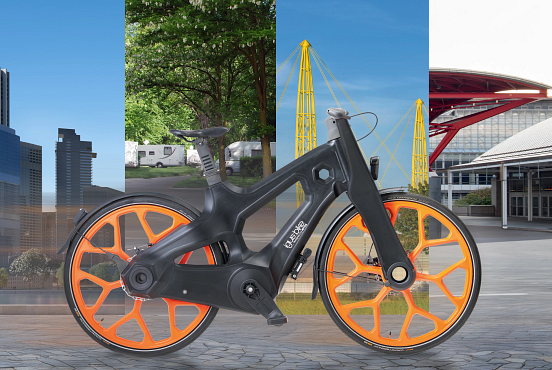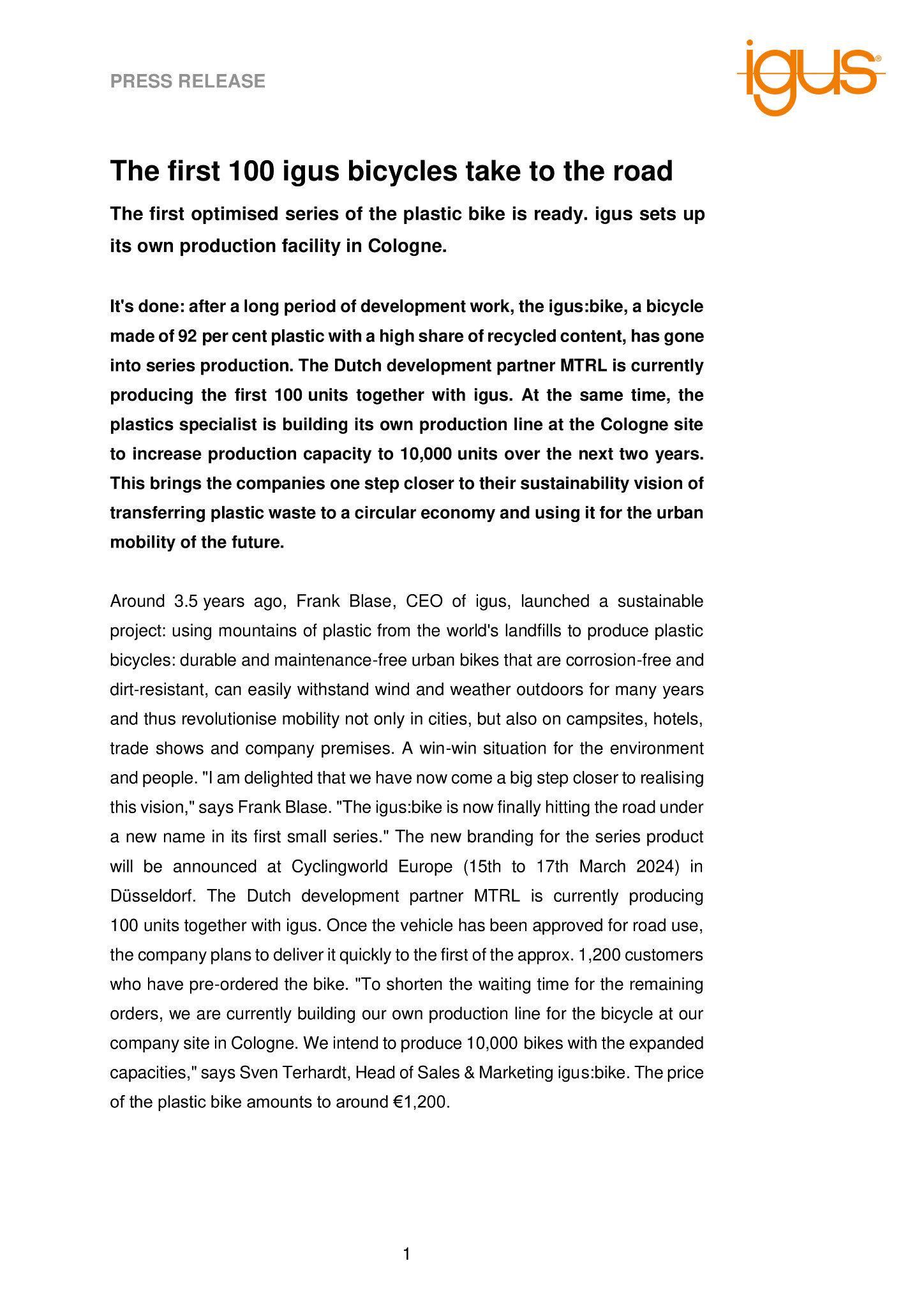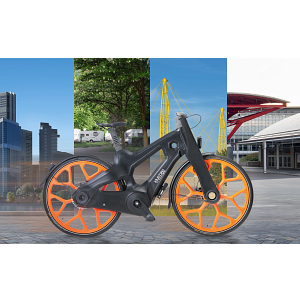The first 100 igus bicycles take to the road
Published on: 13th March 2024
The first optimised series of the plastic bike is ready. igus sets up its own production facility in Cologne.

It’s done: after a long period of development work, the igus:bike, a bicycle made of 92 per cent plastic with a high share of recycled content, has gone into series production. The Dutch development partner MTRL is currently producing the first 100 units together with igus. At the same time, the plastics specialist is building its own production line at the Cologne site to increase production capacity to 10,000 units over the next two years. This brings the companies one step closer to their sustainability vision of transferring plastic waste to a circular economy and using it for the urban mobility of the future.
Around 3.5 years ago, Frank Blase, CEO of igus, launched a sustainable project: using mountains of plastic from the world’s landfills to produce plastic bicycles: durable and maintenance-free urban bikes that are corrosion-free and dirt-resistant, can easily withstand wind and weather outdoors for many years and thus revolutionise mobility not only in cities, but also on campsites, hotels, trade shows and company premises. A win-win situation for the environment and people. “I am delighted that we have now come a big step closer to realising this vision,” says Frank Blase. “The igus:bike is now finally hitting the road under a new name in its first small series.” The new branding for the series product will be announced at Cyclingworld Europe (15th to 17th March 2024) in Düsseldorf. The Dutch development partner MTRL is currently producing 100 units together with igus. Once the vehicle has been approved for road use, the company plans to deliver it quickly to the first of the approx. 1,200 customers who have pre-ordered the bike. “To shorten the waiting time for the remaining orders, we are currently building our own production line for the bicycle at our company site in Cologne. We intend to produce 10,000 bikes with the expanded capacities,” says Sven Terhardt, Head of Sales & Marketing igus:bike. The price of the plastic bike amounts to around €1,200.
igus bicycle consists of 92 per cent plastic
The go-ahead for series production should have been given a few months ago. However, some optimisations to the igus:bike were time-consuming and essential in terms of sustainability. One involved further increasing the proportion of plastic. The few parts that were still made of metal in earlier prototypes, such as the seat post or brake lever, are also made of plastic in the current version. The engineers have also increased the steering angle of the handlebars so that riders can take corners better. Other new features include a freewheel in the drive train so that the wheels turn even without pedalling, more wear-resistant xiros ball bearings that allow the wheels to run even more smoothly and without lubrication, and a two-legged stand to park the bike safely. “The igus:bike, which weighs around 17 kilogrammes, is now made of 92 per cent plastic,” says Sven Terhardt. “From the frame to the bearings to the drive train, which was long considered almost impossible in the industry.”
Recycling rate already at 50 per cent – and rising
igus and MTRL use rotational moulding and injection moulding to produce bicycle components from granulate made of recycled plastic waste, including fishing nets. The engineers and material experts have succeeded in reducing the proportion of virgin plastic used to 50 per cent. “We are now continuing to invest in research and development to increase the recycling rate to 75 per cent as quickly as possible, and even to 100 per cent in the long term,” emphasises Terhardt. “We are accelerating the circular economy for plastics with this high proportion of recycling. Plastic in the world’s rubbish dumps is therefore becoming an increasingly valuable resource.”



